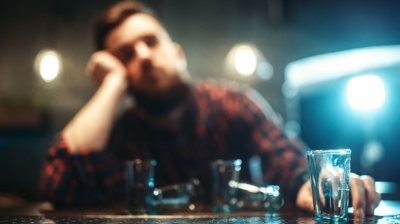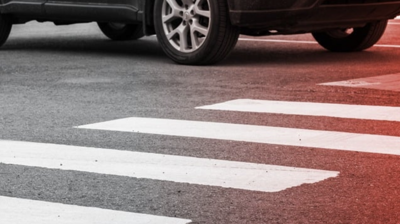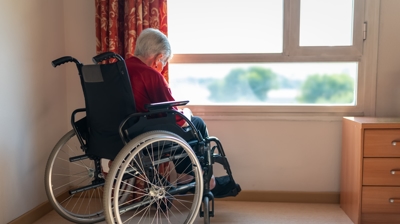Car accidents are not something that happens every day. In fact, the average driver in the United States is involved in a collision only once in every 17.9 years.
When crashes do happen, it can be hard to know what to do next.
If you were not at fault for the crash, what should you do to protect your rights and make sure you receive any necessary compensation?
We’ll break down some tips below. If you need help recovering compensation or have a question on a specific car crash case, don’t hesitate to contact the St. Louis personal injury attorneys at Niemeyer, Grebel and Kruse. We are here for you – (314) 350-1900.
What to Do Immediately After a Car Accident
You’ve just experienced the shock of a collision, and your heart is racing. Now what? The steps you take in the immediate aftermath of a car accident are pivotal in protecting your legal rights and setting the stage for any claims you may need to file.
Ensure Safety and Check for Injuries
Once you’ve taken a deep breath, assess yourself and your passengers for any signs of injury. If you’re able, move your vehicle out of oncoming traffic to avoid further hazards.
Remember, some injuries are not immediately apparent, so even if you feel fine, remain vigilant for any delayed symptoms.
Call Emergency Services
Your next step is clear and non-negotiable: call law enforcement. Use 911 if there’s an emergency or call a non-emergency number of there’s not (SLMPD’s number is (314) 350-1900).
Whether injuries are visible or the damage seems minor, having a law enforcement presence there can be very helpful for collecting evidence for your claim. Police officers will document the incident and file a police report.
They might also direct traffic to prevent additional accidents, while emergency medical personnel can assess and treat any injuries on the scene.
Avoid Admitting Fault
You might have heard that you shouldn’t admit fault around the other driver, and it is true.
As you interact with the other driver, be mindful of your words. A simple “I’m sorry” can be misinterpreted as an admission of guilt, jeopardizing your car accident claim.
It’s essential to exchange information calmly and factually without discussing fault. If the other driver, who might be the at-fault driver, presses you, politely refer them to your insurance company.
This moment is about information, not interpretation.
Gathering Information at the Accident Scene
The evidence you collect at the scene of the accident can be a linchpin for your car accident claim. Once things calm down, start collecting evidence that will shed light on the incident and support your potential compensation claim. This includes taking photos and noting witness details.
Exchange Information with the Other Driver
Exchange names, addresses, phone numbers and insurance information with the other driver. Note their vehicle’s make, model, and license plate number. If there are passengers, get their details too.
This exchange should be straightforward and factual — no need for discussion about the accident’s specifics or who might be to blame.
Take Photos and Videos
Your smartphone is your ally here. Take clear photos and videos of the vehicles, their positions, the damage, and any landmarks that help establish the scene. Document the road conditions, traffic signs, and any skid marks or debris.
These visuals are invaluable for insurance claims and, if necessary, legal proceedings.
Identify Witnesses
Did anyone else see the accident happen?
If so, their perspective could be crucial. Approach any bystanders who might have witnessed the event and ask for their contact information.
If they’re willing, have them write down what they saw. Remember, your goal is to collect unbiased accounts that support your version of events.
Reporting the Accident
After ensuring safety and gathering evidence, you need to officially report the incident.
File a Police Report
The police officer responding to the scene will file the police report. Filing a police report provides an official account of the accident, which can be invaluable if there are disputes about what happened.
In Missouri, you’re legally required to report any accident involving significant injury, death or property damage. This report becomes a key document in establishing the facts and assigning fault.
Notify Your Own Insurance Company
Even if the accident wasn’t your fault, it’s crucial to report it to your own insurance company. This step is often mandated by your policy and helps to initiate the claims process.
Keep in mind that the other party may also report the accident to their insurer, so it’s best to be proactive and ensure your version of events is on record.
Seeking Medical Attention
The adrenaline surge when an accident happened can hide pain, which underscores the need for medical attention. Certain injuries, such as whiplash or internal harm, may take hours or even days to show symptoms.
If you suspect that something might be amiss, a visit to the emergency room or your physician can help uncover these hidden injuries.
Get a Medical Examination
A medical professional can evaluate your car accident injuries, possibly using diagnostic tools like X-rays or MRIs to uncover any hidden damage. These medical records become a critical piece of evidence in your car accident claim, linking your injuries directly to the accident.
Keep Medical Records
As you receive treatment, keep a detailed log of your medical visits, expenses and any related medical bills. These records are essential for documenting the extent of your injuries and their impact on your life, which is crucial when seeking compensation through your insurance claim or a personal injury lawsuit.
Navigating the Insurance Claim Process
Interacting with insurance companies can be as intimidating as the accident. From the first report to the closing settlement, it’s vital to handle this process with accuracy and patience.
Your aim is to secure fair treatment of your car insurance claim and obtain the rightful compensation.
Contacting the At-Fault Driver’s Insurance Company
Once you’ve gathered your evidence, it’s time to contact the other driver’s insurance company.
Provide them with the necessary details of the accident, including the date, time and location, as well as the police report number. Be sure to document every interaction, as these details can be important if the claim becomes disputed.
Submitting Evidence and Documentation
When submitting evidence to the insurance company, include all the photos and videos you took at the scene, along with any witness statements. This documentation will support your version of events and help establish the extent of your damages.
Dealing with Insurance Adjusters
Interacting with insurance adjusters requires a careful balance. Here are some tips to keep in mind:
- Be truthful and consistent in your statements
- Avoid providing recorded statements without legal advice
- Stick to the facts and avoid any admissions that could be used against you
Remember, the insurance adjuster’s job is to minimize the company’s payout, so it’s essential to protect your interests by being cautious in your interactions.
Legal Assistance and Representation
There are times when professional legal assistance is not just helpful — it’s necessary.
Let’s talk about when to consider hiring a car accident lawyer and how they can aid your case.
When to Hire a Car Accident Lawyer
If you’re facing a disputed claim, or the insurance company’s settlement offer doesn’t adequately cover your damages, it’s time to consult a car accident lawyer.
Legal representation becomes crucial when you need to negotiate a fair settlement or if you’re considering taking your case to court.
How a Lawyer Can Help
A car accident lawyer can help in various ways, from communicating with insurance companies and sifting through evidence to representing you in court. They understand the intricacies of car accident claims and can ensure that you’re compensated fairly for your injuries and losses.
Get Legal Help For Your Car Accident Claim
Dealing with the aftermath of a car accident can be incredibly stressful, and it is made even more frustrating when the crash wasn’t your fault.
The other driver and insurance adjusters will do what they can to deny or minimize the compensation they provide to you for car repairs, medical payments and lost time away from work. If this sounds familiar to you, a skilled St. Louis car accident lawyer can help.
Contact the attorneys at Niemeyer, Grebel and Kruse today to discuss your case – (314) 350-1900.






